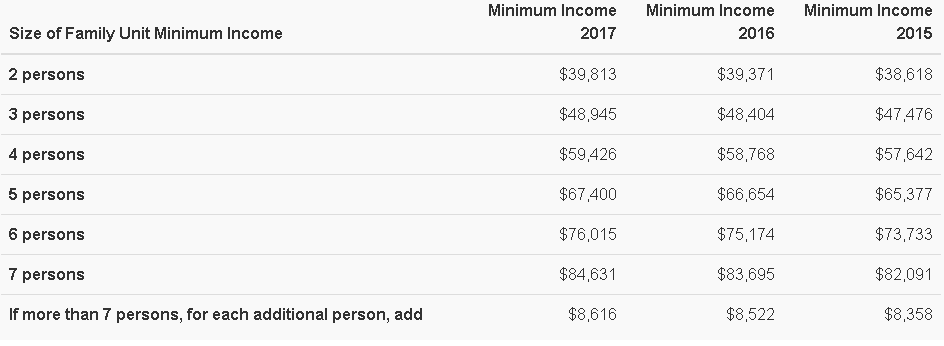Each year we have faced different conditions under the PGP: in 2015 applicants had to submit complete applications on the first working day in January and the quota of 5,000 applicants was filled in one or two days. Then in 2016 and 2017 IRCC increased the quota to 10,000 and moved to a lottery system. However, the lottery system was fraught with problems as many people signed up that did not qualify (they did not have the necessary income for the past three years to be able to sponsor) which resulted in delays and it is not ultimately clear if IRCC was able to meet its quota in each of those years.
The latest news that was released in August 2018 is with regards to the 2019 PGP program. Here is what we know so far:
- Since IRCC has been able to reduce its backlog of applications from 167,000 in 2011 to just over 20,000 in 2018, it has allowed been able to increase the quota for 2019. The 2019 quota under the PGP is set to be 20,000 applications.
- The system will no longer be a lottery and will be based on the order in which you register your interest to sponsor.
- Beginning at the start of 2019, if you are eligible to sponsor your parents or grandparents, you will be able to register an “expression of interest”. IRCC will issue invitations to apply to eligible applicants until the 20,000 quota for 2019 is met based on the order in which files are submitted.
- If you submit an expression of interest and are selected you will only have 90 days to submit a complete application or risk losing your chance to sponsor.
If you are interested in sponsoring your parents, here are 5 important points to understand:
1. In order to be eligible to sponsor your parent or grandparents you will need to meet the eligibility requirements, the most important of which is that you must have had sufficient income for the past three years. The minimum level of income you need will depend on the number of people in your family and the number of people you want to sponsor. For example, for a family of 3 that want to sponsor their parents, they have to have at least the following income: 2017: $67,400, 2016: $66,654, and 2015: $65,377.
You will also need to meet the minimum income for 2018 which has not yet been announced but will be slightly higher than the 2017 amounts. And you will also need to meet all the income requirements until the time your application to sponsor is finalized. The minimum income levels for 2015, 2016 and 2017 based on number of family members are as follows:
2. If the number of people in your family has changed in the last 3 years you should pay close attention. For example, if you were a couple in 2015 but had a child in 2016, then your family unit now consists of 3 people but consisted of 2 people in the earlier year. The question is what level of income should you have? There is no clear guidance on this from IRCC but in order to minimize any risk you should count on having the higher income level based on the number of family members you currently have.
3. If your own income is not sufficient to sponsor your parent(s) or grandparent(s), it is possible for your husband or wife to act as co-signer for the application and have his or her income count towards meeting the income requirements. You should be aware that if your co-sponsor changes his or her mind or there is a breakdown of marriage you may not longer be able to meet the income requirements at the time your application is being considered in the future and therefore will not be eligible to sponsor your application.
4. When you sponsor your parents or grandparents you give an undertaking that they will not use public assistance for a period of 20 years from the time of their landing in Canada. This is a binding undertaking and if the people you sponsor access public assistance you will be required to pay back these sums, often times with interest and penalties. If you have a co-signer this is a binding obligation on your co-signer as well.
5. Planning ahead can help you ensure that you are ready to submit a complete application. Unfortunately details of how the PGP will work in 2019 have not been announced but I have been working with clients over the past few weeks to assess their eligibility and have started to gather all their documents. If you are interested in applying to sponsor your parents or grandparents you should start your preparation process as soon as possible and if necessary seek out professional assistance to assist you in this process.

 RSS Feed
RSS Feed